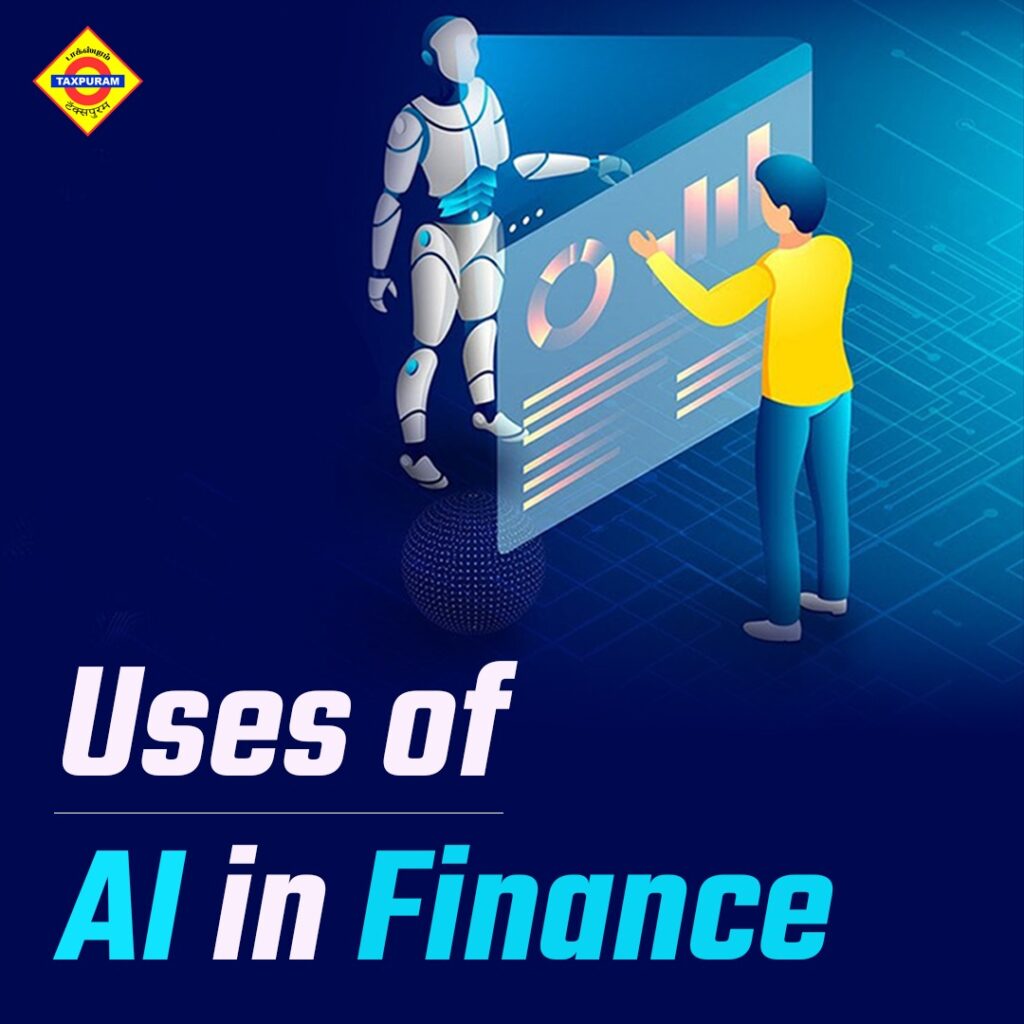
Uses of AI in Finance
Table of contents:
- Introduction
- Transforming Financial Decision-Making with AI
- AI-Powered Investment Strategies
- AI in Risk Management and Fraud Detection
- Automating Routine Financial Tasks
- Future Prospects of AI in Finance
- Conclusion
In the ever-evolving landscape of finance, innovation has become the driving force behind smarter decisions, enhanced customer experiences, and more efficient operations. One of the most transformative innovations of recent times is the integration of Artificial Intelligence (AI) into the financial sector. AI, with its ability to process vast amounts of data, analyze patterns, and make predictions, has revolutionized the way financial institutions operate and interact with their clients.
Let’s delve into the multifaceted role of AI in finance, exploring how it is reshaping traditional practices, enabling advanced investment strategies, fortifying risk management, automating routine tasks, and shedding light on the exciting prospects for the future.
Transforming Financial Decision-Making with AI:
Artificial Intelligence has emerged as a game-changer in the realm of financial decision-making. It empowers financial professionals with unparalleled capabilities to assess data, identify trends, and make data-driven decisions swiftly.
-
Data Analysis:
AI algorithms can process vast datasets in seconds, allowing financial analysts to extract meaningful insights. Whether it’s assessing market trends, evaluating investment options, or predicting customer behavior, AI’s data analysis capabilities are unparalleled.
-
Risk Assessment:
AI models excel at risk assessment. They can identify potential financial risks, such as market volatility or credit defaults, and provide real-time alerts. This proactive risk management is a crucial asset in the financial world.
-
Portfolio Management:
AI-driven portfolio management is gaining momentum. These systems can optimize portfolios, rebalance assets, and respond swiftly to market changes, resulting in better returns and risk management.
-
Personalized Financial Advice:
Chatbots and virtual assistants powered by AI can provide personalized financial advice to clients, helping them make informed decisions regarding investments, savings, and financial goals.
-
Algorithmic Trading:
AI has become a cornerstone of algorithmic trading. Automated systems can execute complex trading strategies with speed and precision, often beyond human capability.
AI-Powered Investment Strategies:
Investment strategies have evolved significantly with the integration of AI into the finance industry. This section explores how AI is revolutionising investment practices:
-
Predictive Analytics:
AI analyses historical data and market indicators to make predictions about asset performance. These predictions guide investment decisions, helping investors identify potentially lucrative opportunities.
-
Quantitative Modelling:
AI-driven quantitative models assess risk and return potential more comprehensively than traditional methods. This enables investors to build more diversified and optimised portfolios.
-
Algorithmic Trading:
High-frequency trading powered by AI algorithms executes buy and sell orders swiftly, often within milliseconds. This speed allows investors to capitalise on fleeting market opportunities.
-
Market Sentiment Analysis:
AI can analyse news articles, social media trends, and other sources of market sentiment to gauge investor sentiment and its potential impact on market movements.
AI in Risk Management and Fraud Detection:
AI’s impact in the realm of risk management and fraud detection within the financial sector is nothing short of transformative:
-
Real-Time Risk Assessment:
AI algorithms continuously monitor vast datasets and market conditions to assess risk in real-time. This capability enables financial institutions to respond swiftly to potential threats, minimizing losses.
-
Anomaly Detection:
AI excels at detecting unusual patterns and anomalies in financial transactions. It can flag potentially fraudulent activities promptly, reducing the risk of financial fraud.
-
Credit Scoring:
AI models evaluate creditworthiness with greater precision by considering a broader range of data points. This results in more accurate credit scoring and risk assessment.
-
Regulatory Compliance:
Financial institutions must adhere to a multitude of regulations. AI streamlines compliance efforts by automating regulatory reporting and ensuring adherence to complex compliance requirements.
-
Cybersecurity:
AI bolsters cybersecurity by identifying and mitigating cyber threats in real-time. It enhances the protection of sensitive financial data and safeguards against cyberattacks.
- Customer Authentication:
Biometric authentication powered by AI, such as facial recognition and fingerprint scans, enhances customer security during online transactions and interactions.
Automating Routine Financial Tasks:
The automation capabilities of AI are revolutionizing the finance industry by taking over routine and repetitive tasks:
-
Data Entry and Processing:
AI-powered systems can extract, process, and categories large volumes of financial data with high accuracy, reducing the need for manual data entry and processing.
-
Customer Support:
Chatbots and virtual assistants equipped with AI respond to customer inquiries, process transactions, and provide account information, enhancing customer service efficiency.
-
Billing and Invoicing:
AI automates the generation of invoices, tracks payments, and manages billing processes, streamlining financial operations for businesses.
-
Loan Processing:
Financial institutions can expedite loan application reviews and approvals through AI systems that assess applicant data, creditworthiness, and risk factors.
-
Transaction Monitoring:
AI monitors financial transactions for suspicious activities, automating the process of identifying and flagging potentially fraudulent transactions.
-
Market Analysis:
AI-driven algorithms can Analyse market trends and investment opportunities around the clock, providing real-time insights to traders and investors.
Future Prospects of AI in Finance:
The future of AI in finance holds immense promise. AI is poised to enhance personalization by tailoring financial services to individual needs, bolster security through advanced fraud detection, and provide intelligent AI-powered financial advisors. The integration of AI with blockchain will bring about greater transparency, and predictive analytics will offer precise insights. AI’s role in ensuring regulatory compliance will expand, and it will contribute to greater financial inclusion, making services accessible to a broader population. As AI continues to evolve, it promises to transform the financial landscape by delivering efficiency, security, and accessibility.
AI has emerged as a formidable force, reshaping traditional practices, enhancing decision-making, and fortifying security. From transforming financial decision-making to revolutionizing investment strategies, risk management, and fraud detection, AI has left an indelible mark.
As AI continues to evolve, it promises to bring even more profound changes to the financial industry, offering efficiency, security, and accessibility. The future is bright, and it’s AI-powered. In this exciting era of financial innovation, embracing AI is not just an option; it’s a necessity for staying competitive and serving clients better.
Recent Posts
- Birla Corp allocates rs.400 crore for cement grinding unit in Prayagraj, Uttar Pradesh
- Karnataka government is looking into a potential partnership with Meta to improve cyber safety.
- Air India and Alaska Airlines Partner to Offer Seamless Passenger Connections to 32 North American Destinations
- India Achieves Record Car Sales in October, Witnessing 16.3% Year-on-Year Growth with 391,472 Units Sold
- YouTube now requires users to either pay for Premium or watch ads, as ad blockers are blocked.






Recent Comments